|

Teaching Kids to Learn from Failure
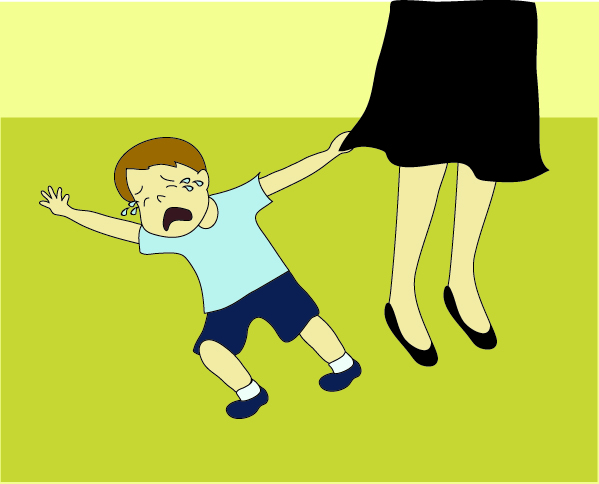 No
one wants their kids experience failure, but it's one of the most important
life lessons you can teach him/her. No
one wants their kids experience failure, but it's one of the most important
life lessons you can teach him/her.
You've
coddled, cuddled, and cooed. Now it's time to let your kid get his
first hard knocks—here's why it's actually the kindest thing you can do.
Go
ahead and let him experience a letdown or two.
Yes, believe it or not, a little bit of defeat can be a stepping-stone to
triumph.
Think
of the things you learn when you encounter and move beyond failure.
- You learn how to tolerate
frustration
- You learn how to get
creative
- You learn how to take different
approaches to tasks
- You learn how to ask for help
These
are all things necessary for long-term success in life.
- If this is all true, why do so
many of us try to eliminate failure from our kids' adventures?
Ashley Merryman, coauthor of NurtureShock: New Thinking About Children,
says it's because we have the mistaken idea “that children are very
fragile and that any bad outcome they experience, no matter how big or
small, could damage their developing self-esteem.” But, she adds, “Science
has proven that it's just not true. Achievement builds self-esteem, not
the other way around.”
- The takeaway:
Here are a few scenarios you're sure to come up against and how to handle
them with aplomb when you do.
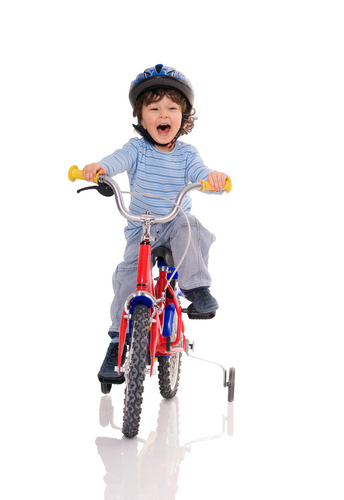 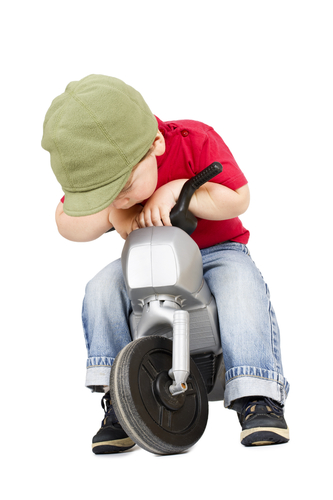
Big
Sibs, Big Inferiority Complex
- A 2 years old wants to do all the
same things that his 4-year-old brother does. He tries to climb on a bike, and then
he's sad because he can't reach the pedals. Or do a puzzle with him, but
can't make the pieces fit. When he realizes he can't keep up, sometimes
he'll cry and stomp his feet and shout.
From
hot mess to success:
- The mom does her best to provide
toddler versions of things the big brother likes—say,
a ride-on toy to enjoy while the older brother is biking.
She also
makes a point of letting the 2 year old practice puzzles and other skills while his sibling is in
preschool: “Sometimes it's easier for him to try when his older brother is not around,” The mom explains,
“Sometimes he’ll say ‘You're too little
to do this!’ and then he gets discouraged.”
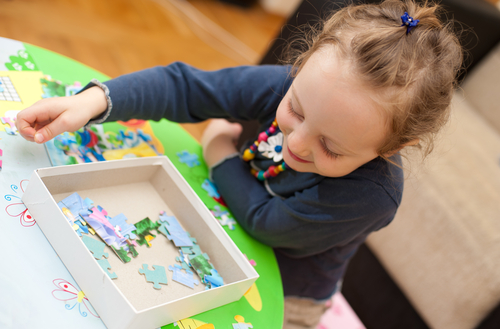 When the mom makes mistakes of her
own, she can model how to handle them in stride, too
(“Oops, I just dropped my ice cream cone!”). The key is to normalize
failure so your child knows he's not the only one who doesn't get things
right on the first try. When the mom makes mistakes of her
own, she can model how to handle them in stride, too
(“Oops, I just dropped my ice cream cone!”). The key is to normalize
failure so your child knows he's not the only one who doesn't get things
right on the first try.
Less
Than Letter-Perfect
- A N.J. mother knows all about
failure, from A to Z. Actually, one letter is getting
her down. “They're practicing writing in preschool, but my daughter can't
make an ‘X.’” “Her lines are wiggly or won't cross properly. She gets
really worked up.”
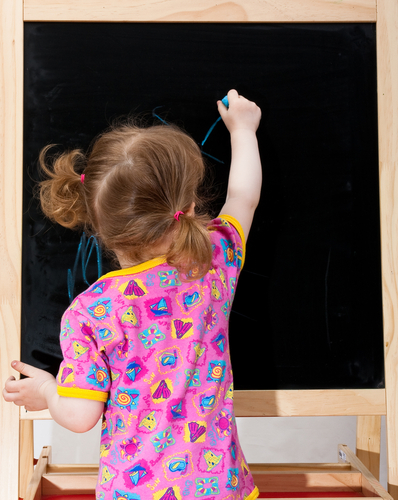 From
hot mess to success: From
hot mess to success:
- The mother reminds her daughter
how far she's come. “I tell her ‘Just think, last
year you couldn't write your whole name, and now you can. Give it a little
more time and I am sure you will be able to make an X, too!” She has also
drawn an X and put a piece of tracing paper on top of it to give her a
template.
“Show
your child that he's not the only one who doesn't get things right on the first
try.”
Losing
It
- A 5 year old boy likes playing the
card game UNO—until someone beats him. “He can get
sad or sometimes even have a tantrum,” notes his mom. That's a scenario
many parents know well.
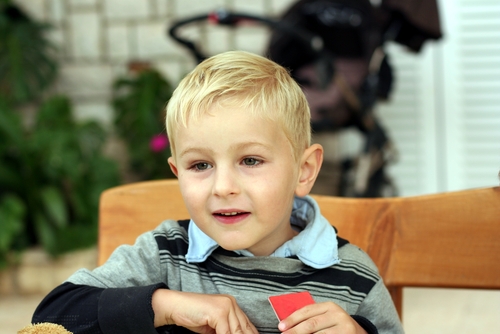 From
hot mess to success: From
hot mess to success:
- The boy’s mom never stacks the
deck in her son’s favor. Instead, before she deals the
cards, she strikes a deal: “I say we'll play three games no matter who
wins or loses, as long as there's no whining. If he whines after losing a
round, then it ends all play and we try again after a 15-minute cool down.
I tell him ‘I love playing with you and spending time together. If you
win, I'm happy, and if I win, I'm happy. It's just for fun!’”
The
mom says, “At the end of playing UNO, as
long as he’s able to, we always shake hands and tell each other ‘Good game.’”
Good sportsmanship is something that never fails to help a child—or adult—in
the long run.
Happy
Parenting!
|
|
|








